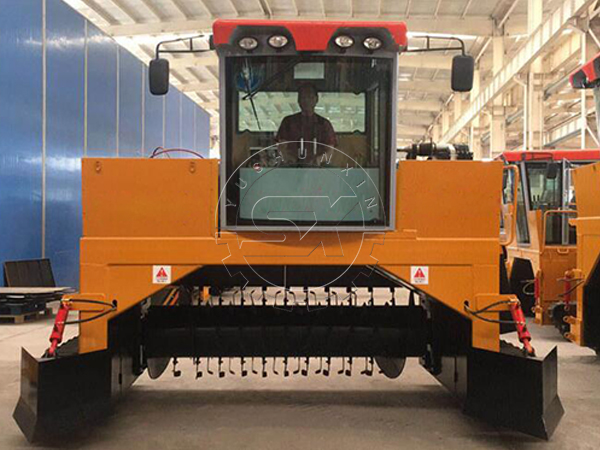The fermentation method of organic fertilizer
Composting is an ancient and simple method of disposing organic waste and making fertilizers. With the deepening of research and the appearance of compost turner equipment, it is highly valued by various countries. That’s because it is good for environment and brings benefits for agricultural production. There are many reports that compost as seedbeds can inhibit soil-borne diseases. And the antagonistic bacteria that come after the high temperature stage of the composting can make a large number of bacteria. The organic matter in the composting is decomposed uneasily, stable, and easily absorbed by crops under the action of microorganisms. At the same time, microorganisms can reduce the toxic effects of heavy metals in a certain range. It can be seen that compost is a simple and effective method to make bio-organic fertilizer, which is beneficial to the development of ecological agriculture.
Most organic fertilizer are only fermented for 15-20 days. Such products can only reach harmless standards. The fermentation of high-quality organic fertilize generally takes 45-60 days.
This is because in the warming and high temperature stage of the fermentation, harmful microorganisms such as plant pathogenic bacteria, eggs, weed seeds, etc. will be killed. However, the main role of microorganisms in this process is metabolism, reproduction and only a small metabolite is produced. And these metabolites are unstable and not easily absorbed by plants. At the later period of cooling, the microorganisms will be fermented and produce a large number of metabolites that are beneficial to the growth of plants. This process takes 45-60 days.
After this process, compost can achieve three goals. Except harmlessness and humusification, there are a large number of microbial metabolites such as various antibiotics and protein substances.
Why does compost produce such an effect? Below here is a more detailed introduction to the principles of composting.
The organic matter in the compost undergoes a complex transformation under the action of microorganisms. This transformation can be summarized into two processes:
One is the process of mineralization, that is, the decomposition of complex organic matter into simple substances like carbon dioxide, water, mineral nutrients and so on. The other is the process of humification, that is, organic matter is decomposed and then synthesized to produce a more complex special organic matter-humus. The two processes are carried out at the same time, but in opposite directions. And under different conditions, the intensity of each process is obviously different.



